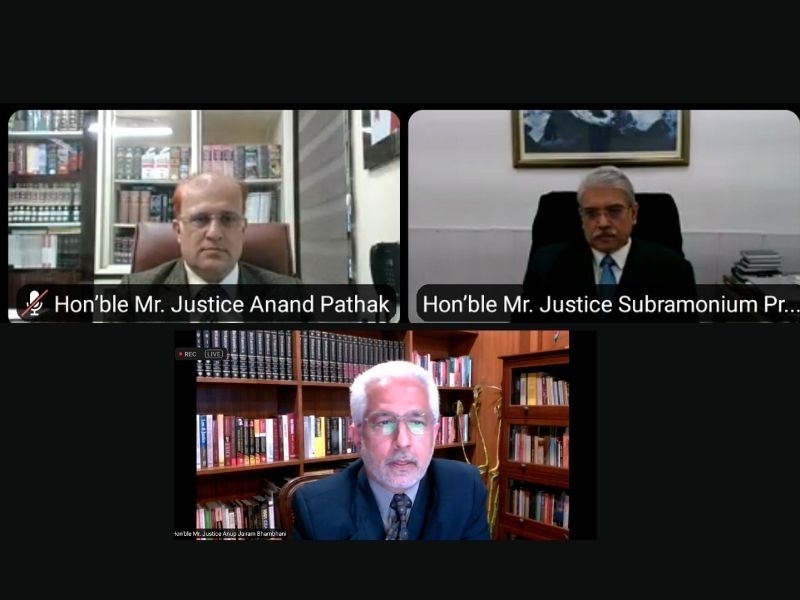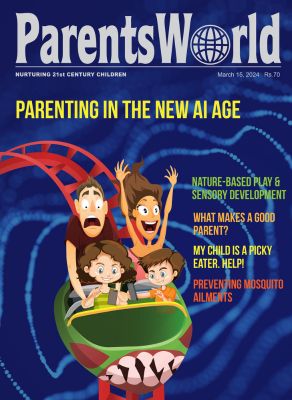Amity Law School, Noida, Amity University, Uttar Pradesh (AUUP), conducted the highly coveted, “Philip C Jessup International Law Moot Court Competition 2022”, on virtual platform. The theme for this year’s competition was “The importance of human rights on the internet, data theft, cybercrime, the secession of part of a nation’s territory and foreign election interference.”
The Indian Qualifying Rounds of the Philip C. Jessup Moot Court Competition, 2022 were held jointly by Amity Law School, Noida, Amity University Uttar Pradesh (AUUP) and The International Law Students Association (ILSA) from 24th February to 27th February 2022. During the Competition, a total of 7 Virtual Preliminary Rounds were held and more than 200 judges who are experts in their respective fields, adjudged 72 matches. The event witnessed participation of about 35 teams including 15 National Law Universities and other acclaimed colleges including Hidayatullah National Law University, Chhattisgarh, Gujarat National Law College, ILS Law College, Pune, Symbiosis Law School, Pune and National University of Advanced Legal Studies, Kochi, amongst others. Gujarat National University and Jindal Global Law School reached the final round where Jindal Global Law School was adjudged the winner the Indian Rounds of the Philip C. Jessup International Law Moot Court Competition, 2022.
Addressing the gathering during the Valedictory Session, Guest of Honour, Hon’ble Justice Suraj Govindaraj, Karnataka High Court, averred, “Cyber Crime, Data Threat, Machine Learning and Artificial Intelligence are big burning topics in today’s scenario. Mooting is a journey of discovery with trials. It instigates a sign of vigour in part-takers to prove their mettle and competency around the facets attached with legal apprehension. Further, what entails is a prolific adventure of analytical and critical-thinking skills.” He advised students to work very hard and be resilient, to be confident and proud of oneself and climb every mountain of struggle by making use of all the opportunities. “Also, law students should pay special attention to their mental health as it can have a huge impact on their litigations.”
Sharing his views on the occasion, the Guest of Honour, Hon’ble Justice Subramanium Prasad, Delhi High Court, stated, “The Moot court competitions are a testimony of the resilience and determination of law students. The first Moot Court Competition was held in 1968 and we have come a long way since then. Indian law students can put India on the global map through their remarkable achievements. Mooting helps in developing lot of skills such as critical thinking and analytical skills which are very important for a successful litigation. It assists the students by providing practical implications and theoretical knowledge as they are two sides of the same coin. Most imperatively, it is an activity which helps in developing a great understanding of legal perspectives and correlated matters and therefore, one should always focus on learning and developing new skills.”
Advising the law students of Amity, Hon’ble Justice Anup Jairam Bhambhani, Delhi High Court, said, “Students of law should ask themselves where they want to see themselves and what is the purpose of choosing the legal profession over others, whether they just want to see themselves as advisors or want to create a change in the society. They must also understand the pathology of a dispute and the consequences and implications which a dispute has in the long run as handling disputes shapes society. Winning the cases can also have a negative impact as seen in the case of marital disputes where the families are affected as a whole, therefore one must be very wise and mindful in these matters. The more powerful stature you attain as a lawyer, the higher the chances of making mistakes. Please be conscious of your decisions and learn to draw boundaries as to how far you should go with your case. The boundaries can be drawn on the basis of one question what is it that I’m leaving behind, in society. Always be aware of the social impact of your actions as a lawyer.”
Sharing the Words of Encouragement, Hon’ble Justice Anand Pathak, Madhya Pradesh High Court, remarked, “Language is one the oldest and most significant inventions in human evolution because it facilitates expression and communication. In ancient times, intellectual deliberations, discussions and interpretations were conducted by the way of ‘Shastrarth’ and “Mimansa”. In present times, Moot Court competitions provide platform to the young student of law to collect facts, assimilate them with applicable law and interpret the facts to reach a conclusion. I appreciate the valuable efforts made by each and every student who participated and performed, irrespective of the result. Right to privacy is a big issue and at times data threat and cyberattacks undermine security and sovereignty related concepts. I hope that the students will utilize all intellectual resources to perform well on this topic by due deliberation, discussions and arguments.”
He concluded by quoting the famous French writer, Luc de Clapiers, “Emotions have taught mankind to reason”. Through emotions, human beings started to reason out and think rationally. In the legal profession, the word ‘emotion’ can be replaced with ‘sensitivity’. Therefore, lawyers must be sincere and sensitive while proceeding with the litigations as it is the question of someone’s life.”.
Addressing the gathering, Tessa Walker, Interim Executive Director, International Law Students Association, said, “For students of law, Mooting is a journey of discovery with trials. It instigates a sign of vigour in part-takers to prove their mettle and competency around the facets attached with legal apprehension. Additionally, a Moot Court Competition successfully sprouts fresh and an unequalled novel experience to explore homologous fields of debating and mediation. However, resilience is the key for achieving success in the legal profession and creativity and innovation also play an integral role in the way legal matters are dealt with.”
Expressing extreme pleasure on the occasion, Dr. Ashok K. Chauhan, Founder president, Amity Education Group, averred, “We started the Amity Law School in 1999 and have come a long way since then. Our vision is to make India a global superpower and the role of lawyers is very significant in achieving this goal. For the development of any nation, we need economic power, human resource power, political stability and most importantly, law and order stability. The role of a lawyer is highly significant as all foreign investors look at how strong is the legal system in India and how well are the courts of law functioning. It highly inspiring to listen to all the lectures of great dignitaries present here today with us and there is a lot to learn from. We are certain that our law students will definitely make their mark in the whole world and contribute significantly to nation building.”
Welcoming the guests, Prof. (Dr.) D.K. Bandyopadhyay, Chairman, Amity Law Schools, Amity University, Uttar Pradesh, stated, “Amity Law School, Noida envisions to foster advancement of learning, teaching and research in the field of law, justice and governance. It inculcates the unique blend of theoretical knowledge with practical learning and skill enhancement among the students. It is an embodiment of the University’s ever-growing quest for excellence by providing the students Global Platforms to represent with their thought provoking and enduring involvement. Towards this, we are proudly hosting the much-esteemed Philip C. Jessup Moot Court Competition for the fifth consecutive time which is highly informative, insightful and useful in preparing the best legal professionals of tomorrow.”
Philip C. Jessup Moot Court Competition is the world’s largest moot court competition, with participants from roughly 700 law schools in 100 countries and jurisdictions. The Competition is a simulation of a fictional dispute between countries before the International Court of Justice, the judicial organ of the United Nations. One team is allowed to participate from every eligible school. Teams prepare oral and written pleadings arguing both the applicant and respondent positions of the case.
Posted in Campus, News




























